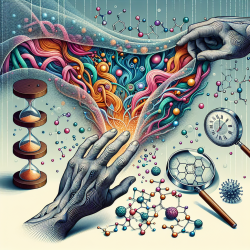The evolution of Medical Assistance in Dying (MAiD) laws in Canada has introduced significant changes for healthcare practitioners. A recent study titled "Practitioners’ experiences with 2021 amendments to Canada’s medical assistance in dying law: a qualitative analysis" provides valuable insights into these changes and their implications. This blog aims to help practitioners enhance their skills by implementing the outcomes of this research or by encouraging further exploration.
Key Findings from the Study
The study analyzed the experiences of 32 MAiD assessors and providers from British Columbia, Ontario, and Nova Scotia. It highlighted five primary themes:
- Removing Barriers to MAiD Access: Changes such as the removal of the 10-day waiting period and streamlining witnessing requirements were seen as positive steps that improved access to MAiD.
- Navigating Regulatory and Systems Recalibration: Practitioners had to adapt to new regulations and systems, facing challenges similar to those experienced when Bill C-14 was implemented.
- Recognizing Workload Burdens: The additional workload involved in Track 2 cases and the final consent waiver was a significant concern, with many practitioners feeling inadequately compensated.
- Determining Individual Ethical Boundaries of Practice: Practitioners grappled with their comfort levels and ethical boundaries, especially regarding Track 2 cases and the future inclusion of MAiD for mental disorders as a sole underlying condition (MAiD MD-SUMC).
- Grappling with Ethical Tensions Arising from Broader Health Systems Challenges: The broader systemic issues, such as limited healthcare resources, added complexity to the ethical considerations of providing MAiD.
Practical Implications for Practitioners
Based on the study's findings, practitioners can enhance their skills and improve MAiD practice by considering the following:
- Engage in Continuous Education: Stay updated with the latest guidelines and best practices, particularly those provided by professional organizations like the Canadian Association of MAiD Assessors and Providers (CAMAP).
- Collaborate and Share Knowledge: Participate in case discussions and webinars to share experiences and learn from peers. This can help in navigating complex cases and regulatory uncertainties.
- Advocate for Adequate Resources: Advocate for better remuneration and support systems to manage the additional workload, especially for Track 2 cases.
- Set Clear Ethical Boundaries: Reflect on personal ethical boundaries and communicate them clearly. This can help in managing the emotional and ethical load of providing MAiD.
- Address Broader Systemic Issues: Work towards improving access to healthcare resources and support services, which can reduce the ethical tensions associated with MAiD requests.
Encouraging Further Research
The study underscores the importance of involving practitioners in legislative changes and regulatory reforms. Practitioners are encouraged to participate in further research to contribute to a deeper understanding of MAiD practice and its implications. This can lead to more informed and effective policies that support both practitioners and patients.
Conclusion
The amendments to Canada’s MAiD law have introduced new complexities and challenges for practitioners. By implementing the outcomes of the recent research and engaging in continuous education and collaboration, practitioners can enhance their skills and improve MAiD practice. This will ultimately lead to better patient care and a more sustainable MAiD system.To read the original research paper, please follow this link:
Practitioners’ experiences with 2021 amendments to Canada’s medical assistance in dying law: a qualitative analysis.










